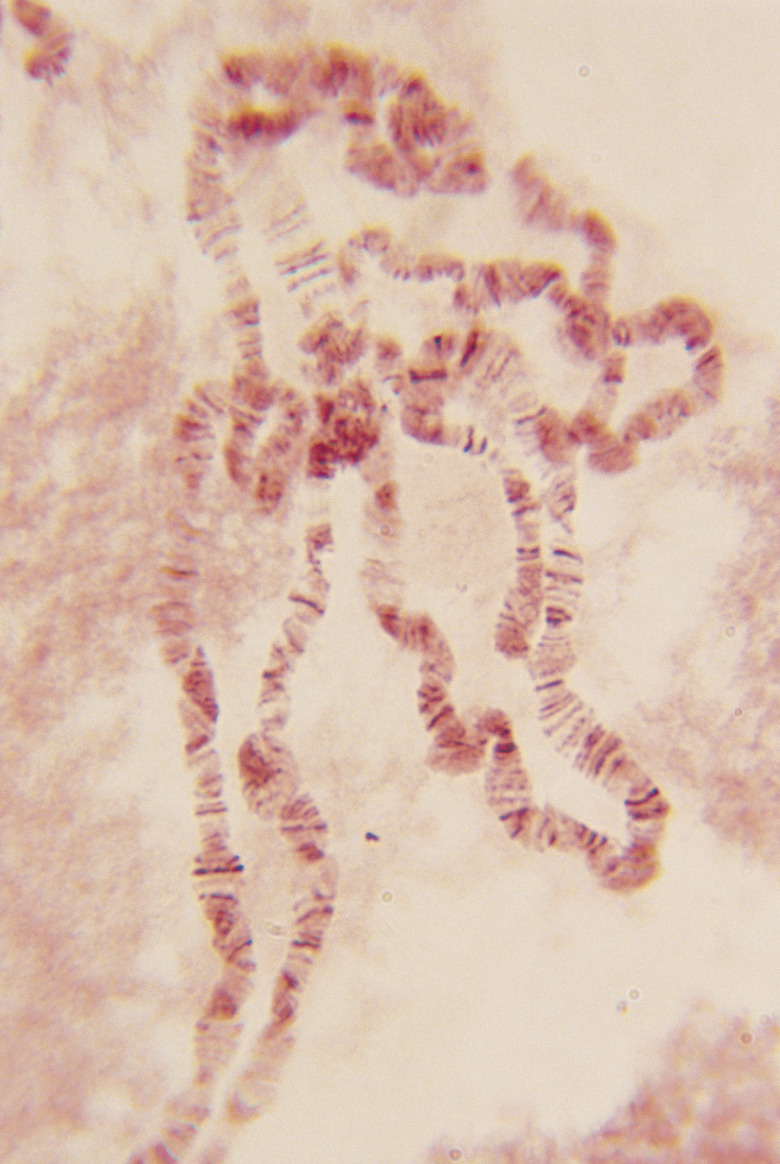What Are Lobes In A Nucleus?
Lobes in a nucleus, aka a multilobed nucleus, is found only in certain immune cells, which have packaged their genetic material (DNA) in multiple spheres instead of one big sphere like in most other cell types. These types of nuclei are called lobular nuclei.
They are found in the following types of immune cells: neutrophils, eosinophils, basophils, and mast cells. When these cells are healthy, they may have three or four lobes, but under anemic conditions the nuclei can form more than four. Anemia is a lack of blood cells, low levels of iron in blood cells, or low oxygen levels in blood cells.
Chromatin
Chromatin
The lobes in a nucleus are made of chromatin, a mixture of DNA and proteins. These aren't just any proteins, but ones specialized for packaging DNA. The main proteins that do this are called histones.
DNA likes to wrap around groups of histone proteins. Together, they look like a pearl necklace. This necklace is further folded onto itself by other proteins to make a large ball-shaped clump. Normal cells have one large circular clump, but certain immune cells have multiple small clumps, which look like teardrops.
Chromatin has a few functions besides packaging DNA. The histones in chromatin have a direct effect on the transcription and translation of certain genes, which can affect gene expression. Chromatin is also used as an immune defense in certain immune cells in a process called NETosis. We'll go more into detail on NETosis later in the article.
Granulocytes: Basophil, Eosinophil, and Neutrophil Nucleus
Granulocytes: Basophil, Eosinophil, and Neutrophil Nucleus
Granulocytes are the category of immune cells that have a multilobed nucleus. They include eosinophil, basophil, and neutrophil nucleus. Another type of immune cell called a mast cell also can have a multilobed nucleus even though mast cells are not granulocytes.
Neutrophils are the most common immune cell in the body. There are four lobes in the neutrophil nucleus. They make up 60 to 70 percent of white blood cells, which are immune cells. Neutrophils eat damaged or infected cells.
Eosinophils have two nuclear lobes in their nucleus and release chemicals to kill parasite worms. Presence of a high concentration eosinophils in the blood can also indicate allergic reaction and/or cancer. Basophils have several nuclear lobes in their nucleus and release histamine molecules that cause allergic reactions. They're also important for wound repair.
Hyper-Segmented
Hyper-Segmented
Neutrophils naturally have three or four nuclear lobes, but there are cases in which they can have more. Studies have shown that people who do not have enough vitamin B12 or folic acid have neutrophils that are hypersegmented, meaning the neutrophils have more than four lobes in the nucleus.
A similar observation was made in people who did not have enough iron in their bodies. A lack of iron leads to anemia, which causes a feeling of weakness in the body. The journal "Pediatric Hematology and Oncology" reported that 81 percent of children who were iron deficient had hypersegmented neutrophils. Among healthy children, only 9 percent had hypersegmented neutrophils.
A Net of DNA
A Net of DNA
A unique feature of immune cells that have multiple lobes in their nuclei is that these cells can eject their DNA as traps. Neutrophils, eosinophils, and mast cells can expel their chromatin into the environment, killing themselves in the act but also forming nets that trap and kill foreign invaders.
Chromatin has sticky properties and forms that are called extracellular traps. When a neutrophil ejects its chromatin, the process is called NETosis. NETosis forms neutrophil extracellular traps (NETs). In addition to sticky chromatin, the NET contains antimicrobial proteins that kill bacteria, fungi, and other microorganisms.
References
- Scitable: DNA Packaging: Nucleosomes and Chromatin
- The Histology Guide: White Blood Cells
- Blood: Mouse Mast Cells That Possess Segmented/Multi-lobular Nuclei
- Pediatric Hematology and Oncology: Neutrophil Hypersegmentation in Children with Iron Deficiency Anemia
- Central European Journal of Immunology: Extracellular Traps Formation and Visualization Methods
- Cell Death & Differentiation: Dying for a Cause: NETosis, Mechanisms behind an Antimicrobial Cell Death Modality
Cite This Article
MLA
Ph.D., David H. Nguyen,. "What Are Lobes In A Nucleus?" sciencing.com, https://www.sciencing.com/lobes-nucleus-20628/. 23 May 2019.
APA
Ph.D., David H. Nguyen,. (2019, May 23). What Are Lobes In A Nucleus?. sciencing.com. Retrieved from https://www.sciencing.com/lobes-nucleus-20628/
Chicago
Ph.D., David H. Nguyen,. What Are Lobes In A Nucleus? last modified August 30, 2022. https://www.sciencing.com/lobes-nucleus-20628/
